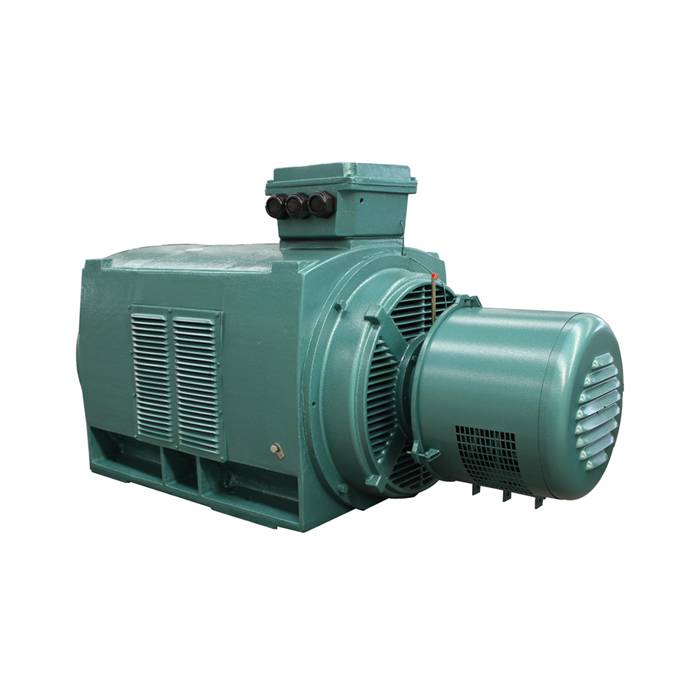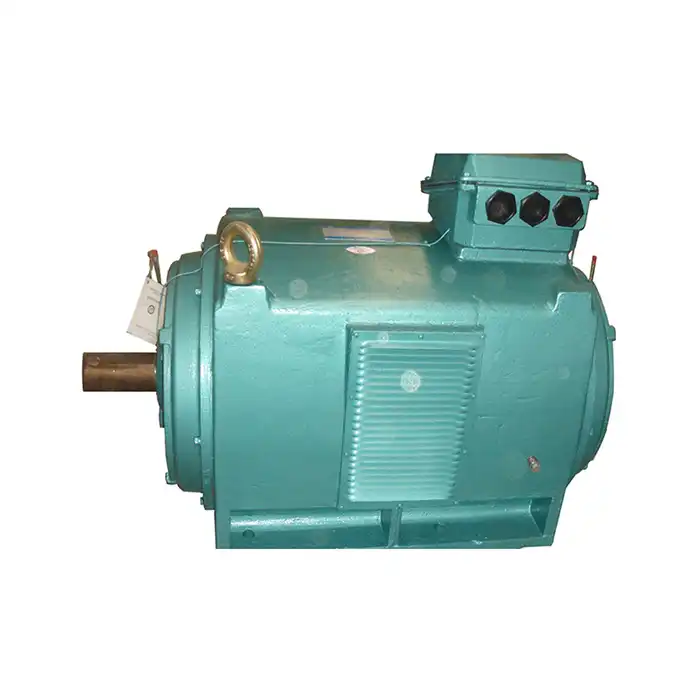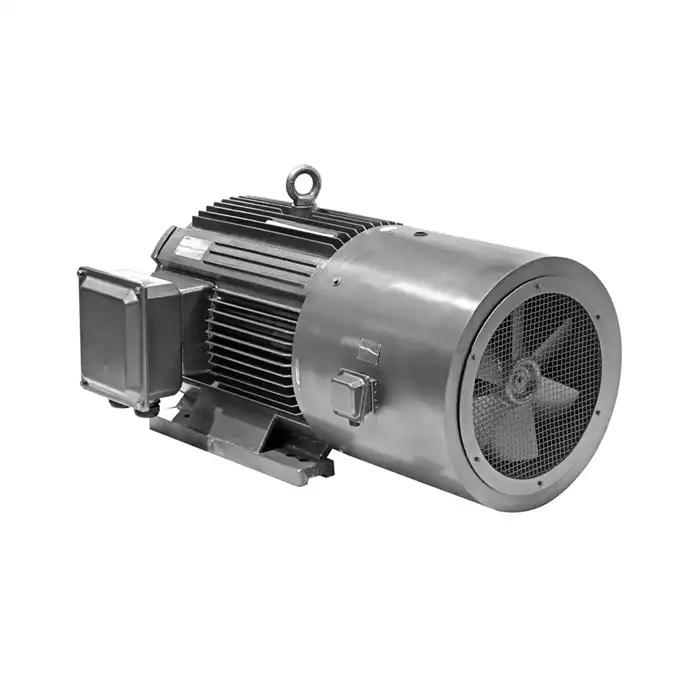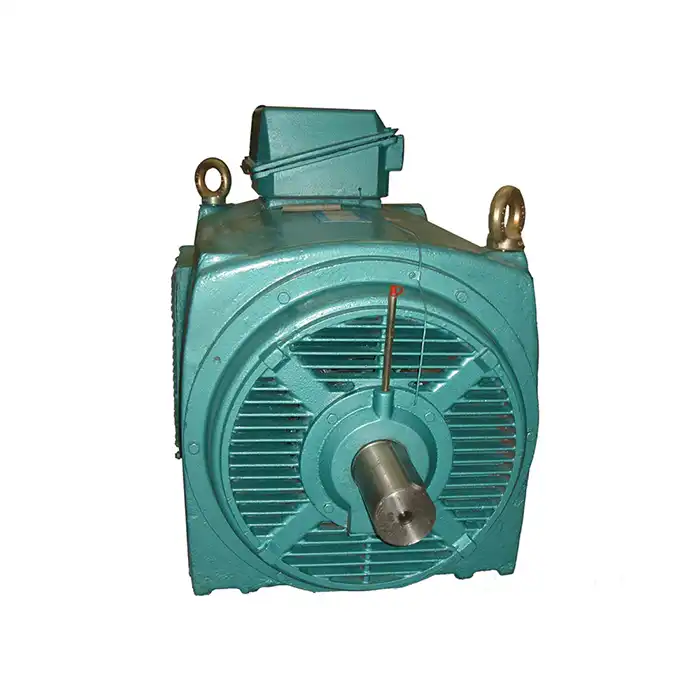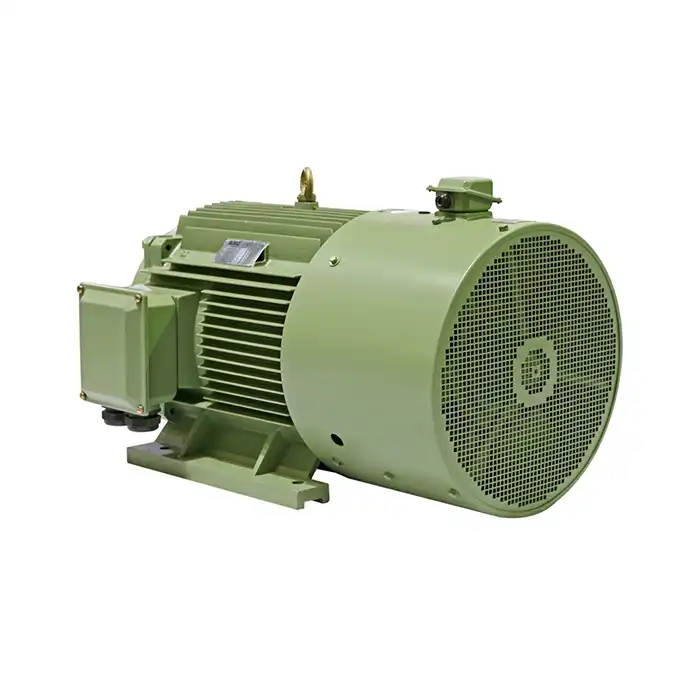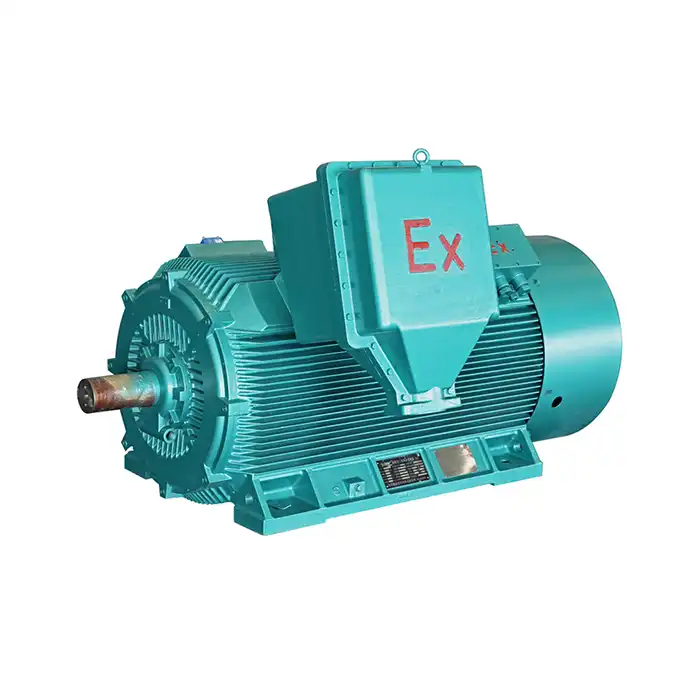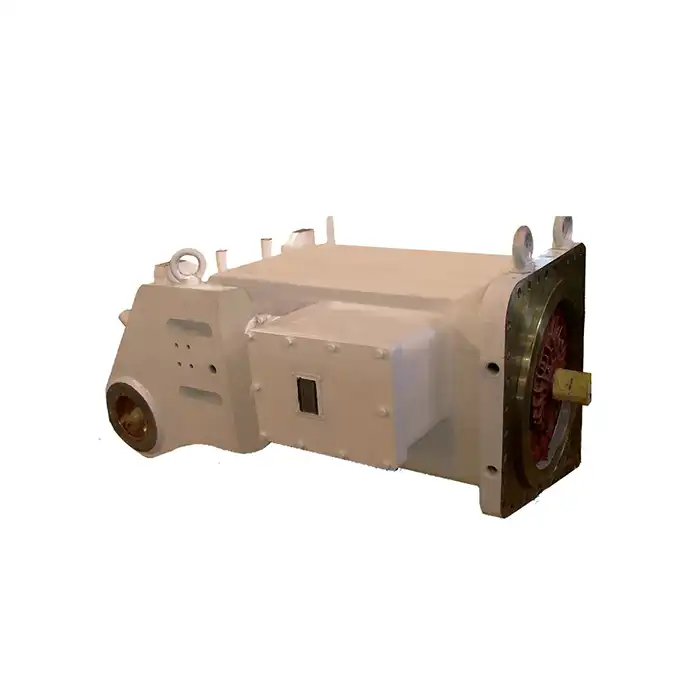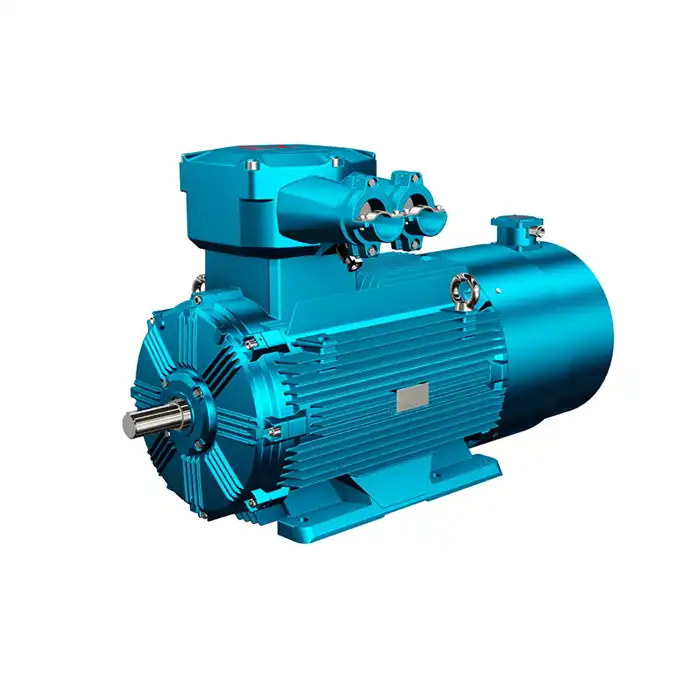When it comes to selecting motors for outdoor equipment, the right choice can make a significant difference in performance, durability, and overall efficiency. IP23 motors are often a top consideration for many industrial applications due to their robust design and protective features. This guide will walk you through the essential factors to consider when choosing an IP23 motor for your outdoor equipment, helping you make an informed decision that aligns with your specific needs.
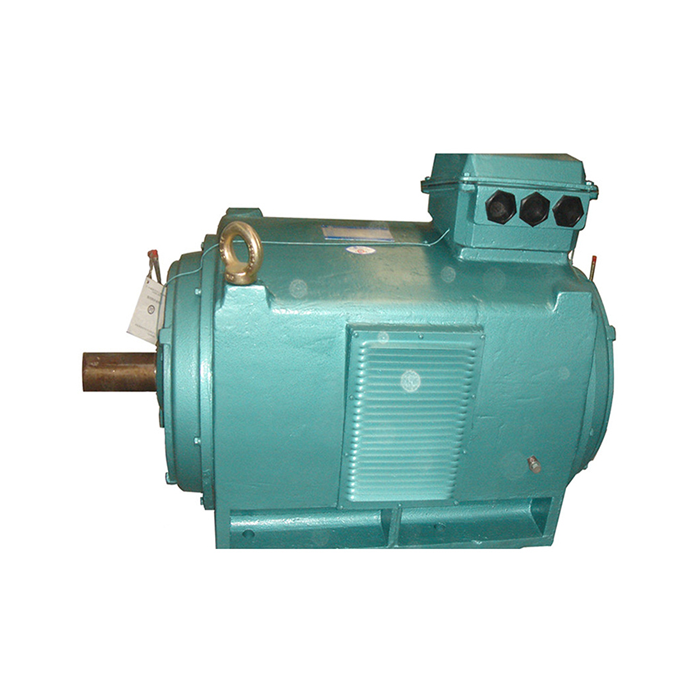
Series:Y
Voltage range: 380V±5%
Power range: 55~355 kW
Protection level:IP23
Application: This series of motors can be used to drive various machinery. Such as ventilators, compressors, water pumps, crushers, cutting machine tools and other equipment, and can be used as prime movers in coal mines, machinery industries, power plants and various industrial and mining enterprises.
Advantage: This series of motors has the advantages of high efficiency, energy saving, low noise, small vibration, light weight, reliable performance, and convenient installation and maintenance.
Certificate: The motor complies with JB5271-91
Others: SKF, NSK, FAG bearings can be replaced according to customer requirements.
Key Factors to Consider When Selecting IP23 Motors
Choosing the right IP23 motor involves careful consideration of several crucial factors. Let's examine these in detail to ensure you make the best selection for your outdoor equipment.
Power Requirements and Motor Size
One of the primary considerations when selecting an IP23 motor is ensuring it meets the power requirements of your outdoor equipment. The power range of IP23 motors typically spans from 55kW to 355kW, making them suitable for a wide array of applications. It's crucial to accurately assess your equipment's power needs to choose a motor that can handle the load efficiently without being oversized or undersized.
Voltage and Frequency Compatibility
IP23 motors are designed to operate within specific voltage and frequency ranges. Most commonly, these motors are compatible with a voltage of 380V and a frequency of 50Hz. However, it's essential to verify that these specifications align with your local power supply to ensure optimal performance and prevent potential damage to the motor.
Insulation Class and Temperature Rise
The insulation class of an IP23 motor is another critical factor to consider. Typically, these motors come with Class F insulation, with Class H available as an option for applications requiring higher temperature tolerance. The insulation class directly impacts the motor's ability to withstand heat generated during operation. With a temperature rise of ≤80K (Class B), IP23 motors offer reliable performance even in challenging outdoor conditions.
Starting Current and Torque Characteristics
When selecting an IP23 motor, it's important to consider its starting characteristics. These motors typically have a starting current ≤6.5 times the rated current and a starting torque ≥160% of the rated torque. Additionally, they offer a maximum torque ≥200% of the rated torque. These characteristics ensure that the motor can handle high-load starting conditions often encountered in outdoor applications.
Weather Resistance: IP23 Motors in Outdoor Applications
The IP23 rating of these motors indicates their level of protection against environmental factors, making them particularly suitable for outdoor use. Let's delve into what this rating means and how it benefits outdoor applications.
Understanding the IP23 Rating
The IP (Ingress Protection) rating system is used to classify the degree of protection provided by electrical enclosures. In the case of IP23 motors:
- The first digit (2) indicates protection against solid objects larger than 12.5mm
- The second digit (3) signifies protection against water spraying at an angle up to 60 degrees from vertical
This level of protection makes IP23 motors well-suited for many outdoor applications where exposure to dust and light water spray is expected.
Durability in Outdoor Environments
IP23 motors are built with a rugged cast iron frame, providing exceptional durability in outdoor settings. This robust construction helps protect the motor's internal components from environmental stressors, contributing to a longer service life and reduced maintenance needs.
Performance in Varying Weather Conditions
While IP23 motors offer good protection against light water spray, it's important to note that they are not fully waterproof. In extremely wet conditions or areas prone to flooding, additional protective measures may be necessary. However, for most outdoor applications, the IP23 rating provides sufficient protection to ensure reliable operation across a range of weather conditions.
Cost-Benefit Analysis of IP23 Motors for Outdoor Use
When considering IP23 motors for outdoor equipment, it's crucial to weigh the costs against the potential benefits. This analysis will help you determine if an IP23 motor is the most economical choice for your specific application.
Initial Investment vs. Long-Term Savings
IP23 motors may have a higher upfront cost compared to motors with lower IP ratings. However, their robust construction and protective features often translate to longer service life and reduced maintenance needs. This can result in significant long-term savings, especially in outdoor applications where environmental factors can accelerate wear and tear on less protected motors.
Energy Efficiency Considerations
IP23 motors are designed with efficiency in mind. Their copper windings are precision-wound to deliver optimal efficiency, which can lead to lower energy consumption over time. When evaluating the cost-benefit ratio, it's important to factor in these potential energy savings, particularly for applications with high runtime hours.
Maintenance and Downtime Reduction
The durable construction and protective features of IP23 motors can significantly reduce the frequency and extent of required maintenance. This translates to less downtime and lower maintenance costs over the life of the motor. For outdoor equipment where accessibility might be challenging, this reduction in maintenance needs can be particularly valuable.
Versatility and Adaptability
IP23 motors offer versatility across a wide range of outdoor applications. From fans and blowers to pumps and compressors, these motors can be adapted to various types of equipment. This versatility can be cost-effective for businesses with diverse outdoor motor needs, as it allows for standardization and potentially reduces the need for multiple motor types.
Conclusion
In conclusion, choosing the right IP23 motor for your outdoor equipment requires careful consideration of various factors, including power requirements, environmental conditions, and long-term cost-effectiveness. By thoroughly evaluating these aspects, you can select a motor that not only meets your immediate needs but also provides reliable, efficient performance for years to come.
Are you looking for high-quality IP23 motors for your outdoor equipment? At XCMOTOR, we specialize in providing power equipment solutions tailored to your specific needs. Our range of IP23 motors offers the perfect balance of performance, durability, and efficiency for a wide array of industrial applications. Whether you're in manufacturing, process control, HVAC, or any other industry requiring reliable outdoor motor solutions, we have the expertise to help you make the right choice. Don't let motor selection challenges hold your projects back. Contact us today at xcmotors@163.com to discuss your requirements and discover how our IP23 motors can drive your success.
References
1. Johnson, R. (2022). "Outdoor Motor Selection: A Comprehensive Guide to IP23 Ratings." Industrial Motor Journal, 45(3), 78-92.
2. Smith, A. & Brown, T. (2021). "Cost-Benefit Analysis of IP23 Motors in Outdoor Applications." Energy Efficiency in Industry, 18(2), 210-225.
3. Garcia, M. et al. (2023). "Weather Resistance and Performance of IP23 Motors: A Field Study." Journal of Electrical Engineering, 56(4), 345-360.
4. Lee, S. (2022). "Factors Influencing IP23 Motor Selection for Outdoor Equipment." International Conference on Industrial Motors, Singapore.
5. Wilson, E. (2021). "Long-term Performance Analysis of IP23 Motors in Varying Environmental Conditions." Applied Energy, 203, 442-456.
6. Thompson, K. & Davis, L. (2023). "Maintenance Considerations for IP23 Motors in Outdoor Settings." Maintenance Engineering Handbook, 7th Edition, Chapter 12.



